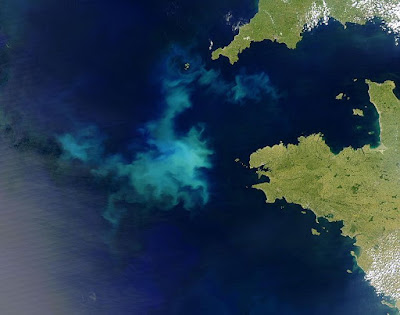SAIC
Scholars Connect Plus is back for a third academic year, with up to 25 funded
MSc places available to Scottish and EU students in 2017/18, as well as a host
of career-oriented activities
Coordinated by the Scottish Aquaculture Innovation Centre (SAIC), and financed by the Scottish Funding Council, SAIC Scholars is one of a number of skills-related initiatives underway to encourage new people into the sector and enhance the career progression of those already working within the industry.
Students can choose from seven MSc programmes at four different Scottish universities:
• Heriot-Watt University – Marine Planning for Sustainable Development or Marine Resource Development and Protection
• University of Aberdeen – Applied Marine and Fisheries Ecology
• University of Dundee – Geotechnical Engineering in Aquaculture
• University of Stirling – Sustainable Aquaculture, Aquatic Pathobiology or Aquatic Veterinary Studies
Key to each programme is the stipulation that students undertake their MSc applied research project on an industry-identified challenge or opportunity.
Says Heather Jones, CEO at SAIC: “Independent consultants Ekos have projected
that SAIC’s work with the sector will help contribute an additional 1,197 jobs
by 2025.[1] By giving students the opportunity to apply their science to a real
industry issue, we are helping equip them with the skills needed, including heightened
commercial awareness – something that employers have told us would be of real
benefit.”
Related to this, the SAIC Scholars initiative also supports a number of added-value activities throughout the academic year.
This includes the highly successful Aquaculture Careers Day – organised by the Aquaculture Students’ Association at the University of Stirling, but now open to all students undertaking an aquaculture-related course at a Scottish university – as well as a series of SAIC-hosted industry perspective workshops.
Explains Cori Critchlow-Watton, Skills Ambassador at SAIC: “We invite leading figures from across the sector to give an insight into to their particular specialism, be that finfish or shellfish, production or supply chain. All students from each of the seven MSc programmes are welcome, so it’s also a way of forging connections between what, ultimately, will be the aquaculture community of the future.”
Adds Dan Mulqueen, a current SAIC Scholar on the University of Stirling’s Sustainable Aquaculture MSc programme: “SAIC’s industry perspective workshops are the perfect complement to the core MSc programme, enabling you to see how what you’re learning in the lecture theatre or lab can be applied to meet the aims and aspirations of the sector. It makes for a great mix.”
For full course details, or to check your eligibility or apply, contact the postgraduate admissions department for your preferred MSc programme.
Read more HERE.
Coordinated by the Scottish Aquaculture Innovation Centre (SAIC), and financed by the Scottish Funding Council, SAIC Scholars is one of a number of skills-related initiatives underway to encourage new people into the sector and enhance the career progression of those already working within the industry.
Students can choose from seven MSc programmes at four different Scottish universities:
• Heriot-Watt University – Marine Planning for Sustainable Development or Marine Resource Development and Protection
• University of Aberdeen – Applied Marine and Fisheries Ecology
• University of Dundee – Geotechnical Engineering in Aquaculture
• University of Stirling – Sustainable Aquaculture, Aquatic Pathobiology or Aquatic Veterinary Studies
Key to each programme is the stipulation that students undertake their MSc applied research project on an industry-identified challenge or opportunity.
 |
| www.scottishaquaculture.com |
Related to this, the SAIC Scholars initiative also supports a number of added-value activities throughout the academic year.
This includes the highly successful Aquaculture Careers Day – organised by the Aquaculture Students’ Association at the University of Stirling, but now open to all students undertaking an aquaculture-related course at a Scottish university – as well as a series of SAIC-hosted industry perspective workshops.
Explains Cori Critchlow-Watton, Skills Ambassador at SAIC: “We invite leading figures from across the sector to give an insight into to their particular specialism, be that finfish or shellfish, production or supply chain. All students from each of the seven MSc programmes are welcome, so it’s also a way of forging connections between what, ultimately, will be the aquaculture community of the future.”
Adds Dan Mulqueen, a current SAIC Scholar on the University of Stirling’s Sustainable Aquaculture MSc programme: “SAIC’s industry perspective workshops are the perfect complement to the core MSc programme, enabling you to see how what you’re learning in the lecture theatre or lab can be applied to meet the aims and aspirations of the sector. It makes for a great mix.”
For full course details, or to check your eligibility or apply, contact the postgraduate admissions department for your preferred MSc programme.
[1] Source: SAIC Performance Monitoring and Targets Report
by Ekos Ltd, August 2015
Read more HERE.
The Aquaculturists
This blog is maintained by The Aquaculturists staff and is supported by the
magazine International Aquafeed which is published by Perendale Publishers Ltd
For additional daily news from aquaculture around the world: aquaculture-news





















